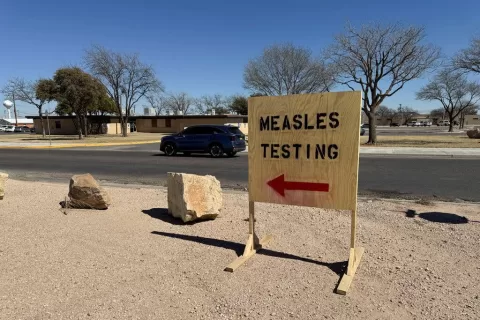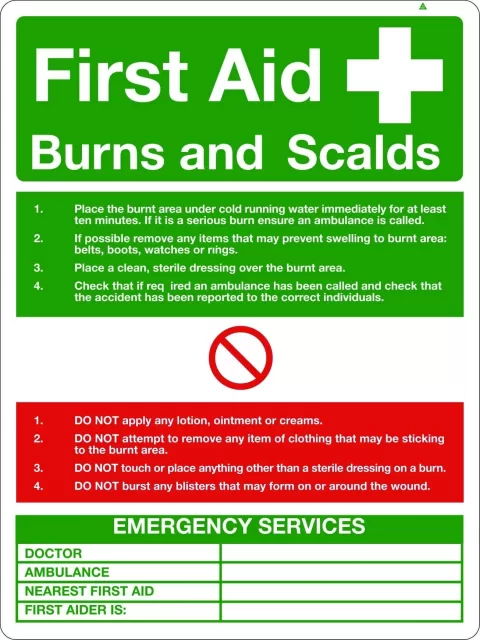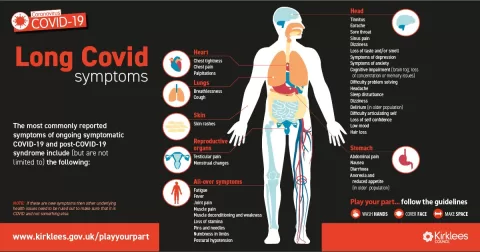Enterovirus D68, a respiratory virus that has raised concerns among health professionals, has been linked to rare but serious neurological complications in children. Recent wastewater data indicates an increase in this virus across the United States, prompting warnings about a potential surge in enterovirus symptoms and cases of acute flaccid myelitis (AFM). While most infections result in mild cold-like symptoms, a small percentage can lead to severe respiratory issues and even paralysis illness. Pediatricians are particularly vigilant as they monitor trends, especially considering the heightened vulnerability of children with underlying health conditions. As awareness grows, strategies to prevent enterovirus transmission are more essential than ever for safeguarding our younger population from its effects.
The recent uptick in enterovirus D68 cases has scientists and healthcare providers on high alert, as this particular strain of virus has been associated with debilitating conditions in pediatric patients. Often masquerading as an ordinary respiratory infection, the virus can escalate into more significant health challenges such as paralysis. As a member of the broader family of enteroviruses, it emerges primarily during summer and fall months, mirroring patterns seen with other catarrhal diseases. Public health experts emphasize the importance of public awareness and preventive measures, particularly for families with children at risk for serious complications. Understanding the potential severity of this viral infection is crucial for ensuring timely medical intervention and reducing its impact within communities.
Understanding Enterovirus D68: Risks and Symptoms
Enterovirus D68 (EV-D68) is a member of the non-polio enterovirus family known primarily for its respiratory impacts. While many individuals may experience mild cold-like symptoms, the virus can lead to more severe health issues, particularly in children. Symptoms such as runny nose, cough, and fever typically present at initial stages, but parents should remain vigilant as the virus can escalate rapidly, leading to complications like acute flaccid myelitis (AFM). This neurological condition can cause serious muscle weakness or paralysis, demanding immediate medical attention.
For most children, EV-D68 presents as a mild illness typically vanishing within a few days. However, certain groups, notably infants, teenagers, and children with asthma, may face heightened risks of developing severe symptoms. It’s crucial to monitor any signs of weakness or difficulty in movement, as these could signal the onset of AFM, a condition that requires urgent care. Understanding these symptoms not only aids in early intervention but can also help in preventing the further spread of the virus.
The Link Between Enterovirus D68 and Acute Flaccid Myelitis (AFM)
Acute flaccid myelitis (AFM) is a rare neurological condition that has been observed in some children infected with enterovirus D68. AFM can lead to severe paralysis, mimicking the effects of polio, which is why pediatricians are particularly concerned about the emergence of EV-D68 cases. The virus targets the nervous system, potentially resulting in muscle weakness predominantly in the arms and legs. Medical professionals emphasize the importance of recognizing early symptoms of AFM, such as drooping eyelids, difficulty swallowing, and overall weakness.
While AFM is a rare complication of EV-D68, it poses critical risks, especially as cases tend to peak during late summer and fall, coinciding with peak seasons for respiratory viruses. Continuous monitoring of wastewater data has indicated rising levels of EV-D68, prompting health experts to stay alert for potential outbreaks. Parents should ensure they familiarize themselves with the symptoms associated with AFM, seeking medical advice promptly if their child shows any signs of neurological impairment.
Preventing Enterovirus D68 Infection in Children
Prevention is key when it comes to reducing the spread of enterovirus D68 among children. Basic hygiene practices such as regular handwashing, disinfecting surfaces, and avoiding close contact with sick individuals can significantly minimize the risk. Pediatricians recommend particularly targeting commonly touched surfaces, as EV-D68 can persist on surfaces for an extended period. Moreover, teaching children the importance of not sharing drinks, utensils, or engaging in intimate interactions when symptomatic can further prevent the virus’s circulation.
To bolster defenses against EV-D68, families should adopt proactive measures that include keeping children home when they show signs of illness. Health experts underscore the importance of staying vigilant, especially during peak viral seasons. If a child experiences symptoms indicating EV-D68 or shows any neurological issues, close consultation with a pediatrician is recommended, as this can lead to timely interventions and care.
Emerging Data from Wastewater Surveillance on Enterovirus D68
Wastewater surveillance has emerged as a significant tool in the early detection of enteroviruses, including EV-D68. Initiatives like WastewaterSCAN provide real-time data that can help public health officials prepare for potential spikes in viral infections, enabling timely responses to outbreaks. By monitoring sewage samples for viral RNA, researchers can identify areas with increased levels of EV-D68 and inform the community about necessary precautions, thereby potentially averting widespread infections.
This proactive monitoring is invaluable, as enterovirus D68 can circulate in a community even before symptoms manifest in individuals. Early detection allows for a better understanding of the disease’s spread, thereby guiding healthcare responses and preventive measures. As wastewater data points to a potential increase in enterovirus cases, it is crucial for families to stay informed of local health alerts and practice recommended health and safety measures to protect vulnerable children.
Symptoms of Enterovirus D68: What Parents Should Watch For
Recognizing the symptoms of enterovirus D68 is essential for timely intervention, especially in children who may develop more serious health issues. Initial symptoms typically include mild cold-like effects such as a runny nose, fever, and cough. As the illness progresses, watch for indications of respiratory distress and neurological symptoms, which may signify a shift toward more severe conditions like acute flaccid myelitis (AFM). Identifying these signs early can significantly impact treatment outcomes and help prevent further complications.
The subtle nature of early symptoms means that parents should maintain a vigilant eye on their children’s health during peak seasons for enterovirus. If a child begins displaying unusual weakness, difficulty in movement, or respiratory difficulties, it may necessitate an urgent evaluation by a healthcare professional. Early interventions can lead to better management of symptoms, potentially mitigating the risk of long-term effects associated with this viral infection.
The Role of Pediatricians in Managing Enterovirus D68 Infections
Pediatricians play a vital role in managing and treating infections caused by enterovirus D68. They are tasked with making critical distinctions between mild respiratory infections and more serious illnesses like acute flaccid myelitis (AFM), which may require further diagnostic tests and specialist referrals. Parents should feel encouraged to consult with their child’s pediatrician upon noticing any symptoms relevant to EV-D68, as these healthcare providers are equipped to interpret symptoms accurately and initiate appropriate treatment plans.
By regularly updating knowledge around emerging viruses such as EV-D68, pediatricians can better inform parents about preventive measures and treatment protocols. Additionally, providing education on recognizing the early signs of complications empowers families to seek care timely. Ultimately, the partnership between parents and pediatricians is crucial for effectively managing the health and well-being of children in the face of such viral threats.
Current Treatment Options for Enterovirus D68 Symptoms
Currently, there are no specific antiviral medications or vaccines available for enterovirus D68, leaving supportive care as the primary treatment option. Supportive care includes managing symptoms such as fever and pain relief alongside treatments to alleviate respiratory distress if it occurs. In cases where muscle weakness is a symptom, physical therapy can help to restore function and facilitate recovery. Healthcare providers are essential in managing care and monitoring any developing complications associated with EV-D68.
Close monitoring and supportive management are vital, especially in young patients who may be more susceptible to severe outcomes. Families should work closely with healthcare providers to establish a treatment plan that targets symptom relief and supports recovery pathways. Education on the expected course of the illness can also reduce anxiety among parents and ensure that they are well-equipped to support their child’s health needs during recovery.
Community Awareness: Addressing the Rise of Enterovirus D68
Community awareness plays an essential role in combating the rise of enterovirus D68, especially as parents and caregivers can be the first line of defense against the spread of the illness. Public health campaigns that promote education on recognizing symptoms and the importance of hygiene can significantly help in reducing transmission rates. Awareness programs can also encourage timely reporting of cases to authorities, thereby triggering necessary public health responses.
Additionally, schools and community organizations should take an active stance in promoting health awareness initiatives. By implementing educational sessions on respiratory viruses, including EV-D68, communities can work together to create an informed public that knows how to react effectively in the face of infections. Such collaborative efforts can lead to decreased incidence rates and better outcomes for affected families, setting a precedent for strong community health resilience.
Advocating for Research in Enterovirus D68 and AFM
Advocating for research into enterovirus D68 and its associated conditions, such as acute flaccid myelitis (AFM), is critical for improving understanding and management of the illness. Continued funding and support for scientific studies help identify the mechanisms by which EV-D68 affects the nervous system, which is crucial for developing targeted therapies and preventive measures. Health organizations and families affected by AFM should lobby for research initiatives that can bring new insights to this rare yet concerning outcome of EV-D68 infection.
Furthermore, increased awareness around the impacts of AFM and the links to enterovirus D68 can drive funding priorities and research agendas. Mobilizing community and family engagement can lead to significant advancements in the knowledge base regarding EV-D68, providing hope for better prevention strategies and treatment options in the future. The importance of ongoing research cannot be understated as it holds the key to understanding how to protect vulnerable populations, particularly children.
Frequently Asked Questions
What are the common enterovirus D68 symptoms in children?
Common enterovirus D68 symptoms in children include mild respiratory issues such as a runny or stuffy nose, cough, fever, body aches, and some may experience sore throat. In rare cases, severe respiratory symptoms or neurological complications such as acute flaccid myelitis (AFM) can occur.
How does enterovirus D68 relate to AFM (acute flaccid myelitis) in children?
Enterovirus D68 is linked to AFM, which is a serious condition that can cause muscle weakness and paralysis. When the virus affects the nervous system, it can lead to symptoms characteristic of AFM, affecting movement in the arms and legs.
What is the best way to prevent enterovirus D68 infections?
To prevent enterovirus D68 infections, it is important to practice good hygiene. This includes frequent hand washing, avoiding sharing drinks and utensils, disinfecting surfaces, and keeping children home when they exhibit symptoms of a respiratory illness.
Is enterovirus D68 a respiratory virus, and how does it spread?
Yes, enterovirus D68 is classified as a respiratory virus. It spreads from person to person through respiratory droplets when an infected person coughs or sneezes, as well as by touching contaminated surfaces.
What should parents do if their child shows signs of paralysis or weakness related to enterovirus D68?
If a child shows signs of weakness in their legs, difficulty walking, or any symptoms of paralysis, parents should seek medical attention immediately. Contacting a pediatrician is crucial as they know the child’s medical history and can provide appropriate care.
Are there any specific treatments available for enterovirus D68?
Currently, there is no specific antiviral treatment or vaccine for enterovirus D68. Treatment usually involves supportive care to relieve symptoms and physical therapy if paralysis or weakness occurs.
How can wastewater data help monitor enterovirus D68 outbreaks?
Wastewater data helps monitor enterovirus D68 outbreaks by detecting viral levels in sewage. Elevated levels can indicate an increase in virus circulation in the community, allowing public health officials to prepare and respond proactively.
What demographic is most affected by enterovirus D68 and its complications?
Children, particularly infants, toddlers, and teenagers, are most affected by enterovirus D68. Those with pre-existing respiratory conditions, such as asthma, may also experience more severe illness.
| Key Points | Details |
|---|---|
| Enterovirus D68 | Common respiratory virus linked to paralysis in children. |
| Current Situation | Wastewater surveillance shows elevated levels of EV-D68 in the U.S., classified as ‘moderate’ risk. |
| Symptoms | Typically causes mild cold-like symptoms; can lead to severe respiratory issues and acute flaccid myelitis (AFM). |
| Risk Factors | Infants, children, teenagers, and children with asthma are most at risk for severe illness. |
| Prevention Tips | Preventative measures include good hygiene, avoiding shared utensils, and staying home when sick. |
| Treatment | No specific antivirals or vaccine; treatment focuses on supportive care and physical therapy for weakness. |
Summary
Enterovirus D68 is a respiratory virus that has recently raised alarms due to its potential to cause paralysis in children. With rising levels detected in wastewater, pediatricians urge vigilance as the virus circulates more actively this year. Although many infections present only mild symptoms, there is a concerning possibility of severe neurological complications. Early detection and preventive measures are critical in managing this virus effectively.
The content provided on this blog (e.g., symptom descriptions, health tips, or general advice) is for informational purposes only and is not a substitute for professional medical advice, diagnosis, or treatment. Always seek the guidance of your physician or other qualified healthcare provider with any questions you may have regarding a medical condition. Never disregard professional medical advice or delay seeking it because of something you have read on this website. If you believe you may have a medical emergency, call your doctor or emergency services immediately. Reliance on any information provided by this blog is solely at your own risk.








